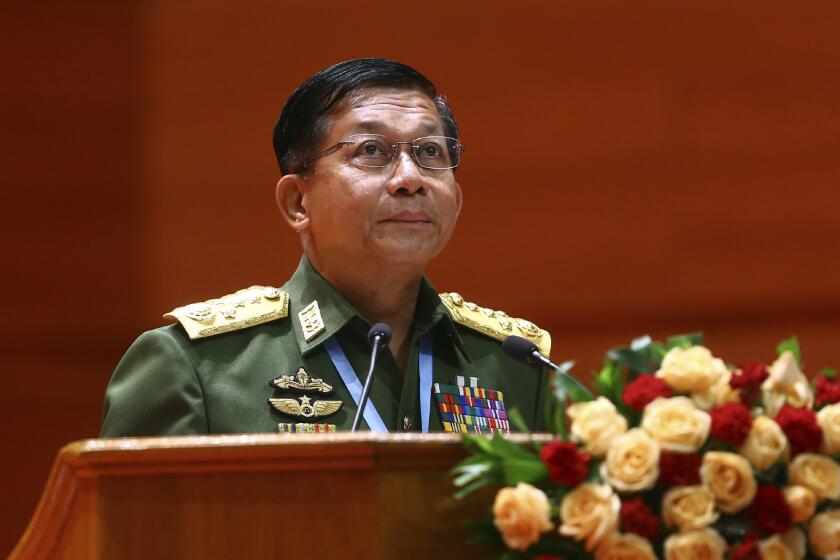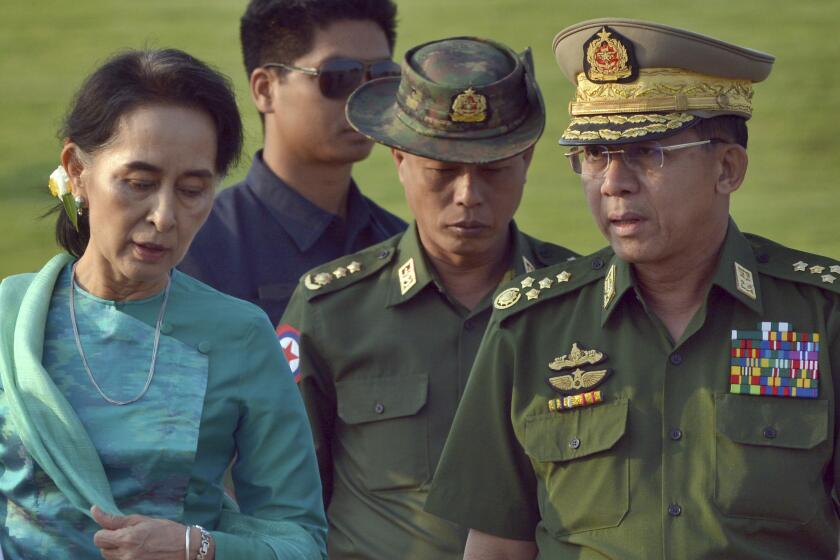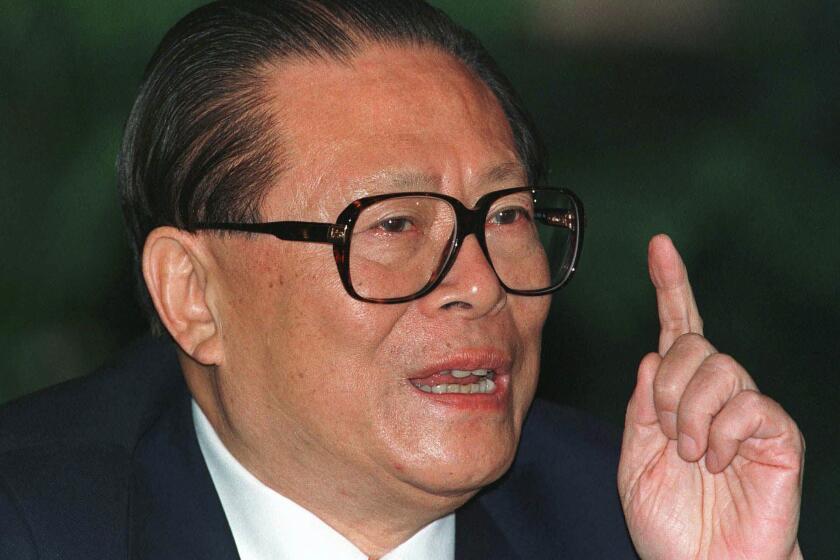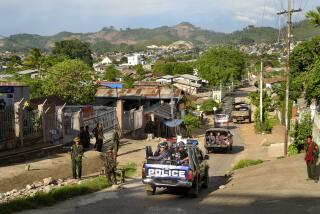Myanmar’s army pledges stability, but coup could worsen ethnic conflicts
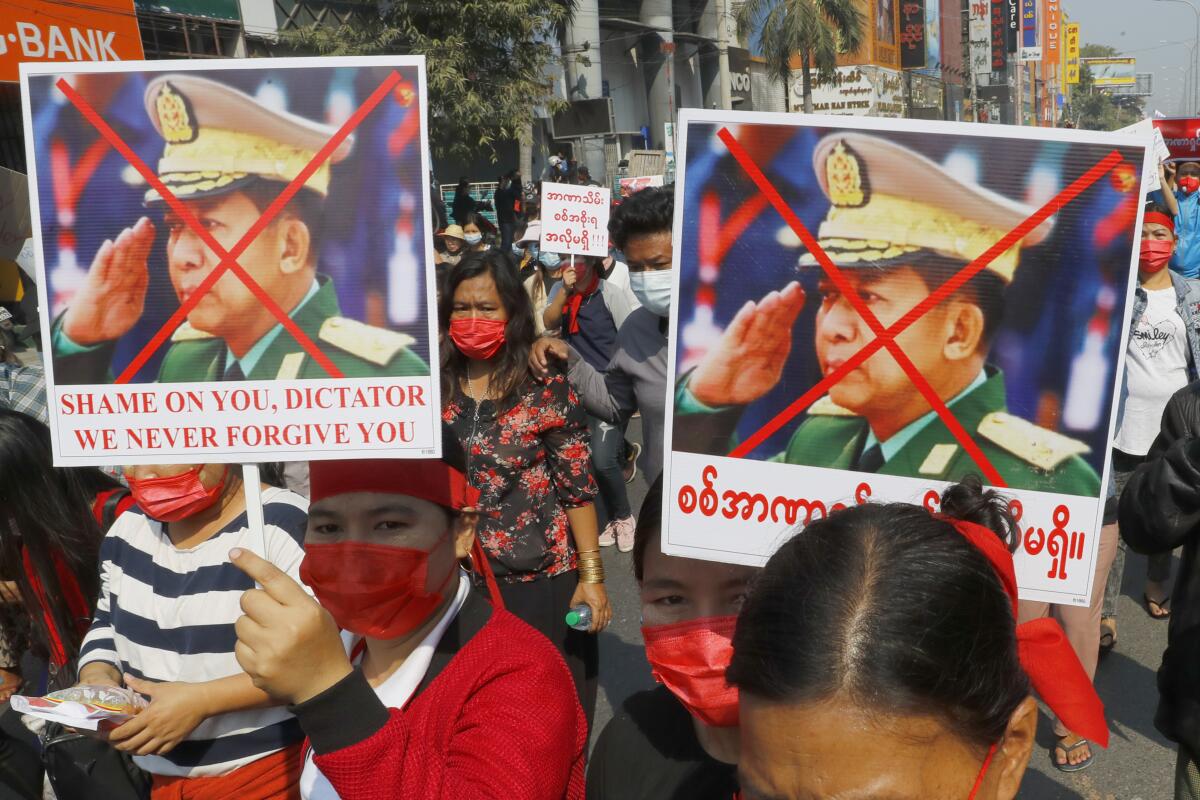
- Share via
SINGAPORE — As the ousted head of the semiautonomous Kokang regional government traveled along a highway in northern Myanmar last week, his motorcade came under fire from assailants perched on a nearby hillside.
The official, Bai Yingneng, was unhurt in the Friday attack, but 12 people were reportedly killed, including three teenage officers of Bai’s security force and nine civilians.
The apparent assassination attempt came a day after Bai — who had cultivated ties with the Myanmar army as chairman of the Kokang regional government — was forced to step down and hand power to the military, which seized power in the Feb. 1 coup.
The military takeover has been met with growing protests in Myanmar’s main cities — including in Mandalay, where police fired warning shots and water cannons Tuesday against crowds defying a ban on demonstrations. But the ambush in Kokang, a hilly region near the Chinese border, illustrated the threat of fresh instability in far-flung areas that are home to minority ethnic groups and armed militias that have long agitated for greater rights.
Analysts say the coup likely marks the end of a complex peace process involving the military and the armed factions, which has made little progress despite tens of millions of dollars in foreign funding. The result could be greater fighting across wide parts of the Southeast Asian nation as the army and militias battle to reestablish influence over areas rich in resources and awash in weapons.
“It’s the coup de grace for the peace process,” said David Mathieson, an independent analyst who studies Myanmar, also known as Burma.
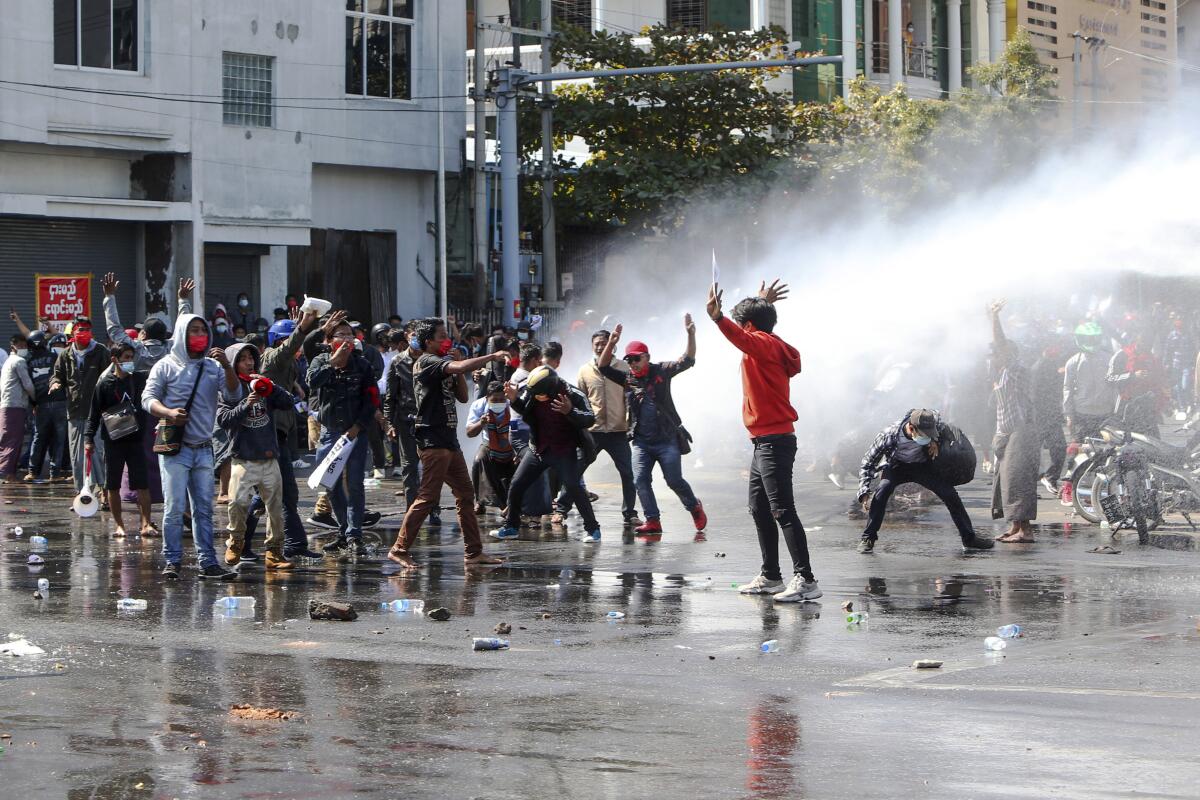
In little more than a week, the junta has dismantled key elements of the peace process, including the National Reconciliation and Peace Center, the agency tasked with facilitating negotiations under the now-deposed civilian government. The agency’s chair and former head of the government, Aung San Suu Kyi, now sits in military detention.
The disposition of the agency’s funds — including at least $38 million supplied by the European Union since 2012 — is unknown. It is unclear whether the document underpinning negotiations, a Nationwide Ceasefire Agreement ratified by parliament last August, is still valid.
The army, known as the Tatmadaw, said it would form a new committee to handle peace talks and pledged to halt military operations against groups involved in the peace process until the end of the month.
Myanmar’s military already held vast economic and political power. Now it has to govern a country grappling with health and economic crises.
Many armed groups have condemned the takeover. This week, the Karen Peace Support Network, an influential coalition of ethnic Karen civil society groups, released a statement saying that “the current peace process is dead” and called on all armed groups to suspend negotiations with the junta.
The Tatmadaw has a long record of truce violations and human rights abuses against ethnic minorities, including its 2017 offensive in Rakhine state that drove out more than 700,000 Rohingya Muslims, who are not part of the peace process. Its sudden seizure of power this month followed a decade of gradual democratic reforms and two freely contested elections that had offered hope for a negotiated end to some of Asia’s longest-running insurgencies.
“The promise of democracy, multiparty elections and other reforms were key to bringing ethnic armed groups to the table and provided a modicum of trust that is now gone,” said Kim Jolliffe, a researcher who studies security in Myanmar.
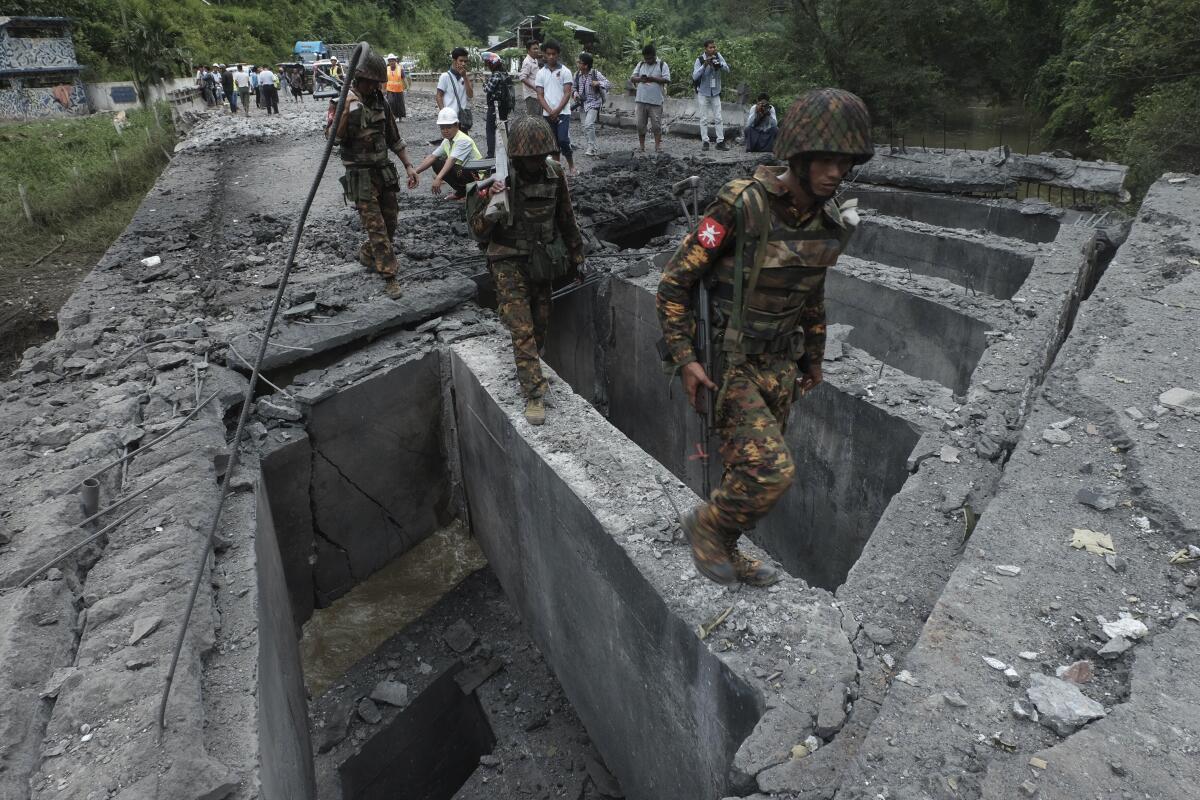
The coup has also upended a fragile status quo in Kokang, which the military once touted as a model for armed groups of the benefits of agreeing to the generals’ terms.
In 2009, the Tatmadaw launched a military operation to force members of the local militia, the Myanmar National Democratic Alliance Army, or MNDAA, to become a border guard force under the military’s control. The general who led the operation, Min Aung Hlaing, was promoted and eventually rose to commander-in-chief — and leader of the coup.
Since becoming a self-administered zone in 2010, Kokang has been transformed by construction of casinos popular with Chinese tourists. But it continues to be hit by occasional violent attacks from the MNDAA faction that did not join the border guard force.
The Tatmadaw this week blamed the militia for the attack on Bai’s motorcade. During the weekend, the military deployed the Kokang border guard force to launch a counterattack against the MNDAA, the army from which it splintered over a decade ago. Plans for the group to participate in peace talks later this month in Yunnan, China, have been scrapped.
Myanmar’s civilian leader made a Faustian bargain with the army for political gain, critics say. It ended with her detention in Monday’s coup.
Some of Myanmar’s ethnic groups have been fighting the central government since 1949, shortly after the country gained independence, with periodic clashes killing untold numbers of civilians and sending tens of thousands of refugees across borders.
Hopes for peace soared in 2016, when Suu Kyi’s National League for Democracy formed a civilian government to share power with the army. Suu Kyi, who led opposition to the junta for decades, created a team tasked with persuading more groups to join a nationwide ceasefire agreement that to that point had been signed by eight ethnic militias.
But talks made little progress, in part because many ethnic leaders didn’t trust Suu Kyi’s party, dominated by the Bamar ethnic majority. A committee set up to monitor ceasefire violations lacked credibility because it consisted of military officers. Promises of economic development in ethnic armed group-held areas failed to materialize, and Suu Kyi’s government soon turned its focus to shoring up its base ahead of elections in November 2020.
More stories from Asia
“I don’t think the peace process was ever high on their list of priorities,” Mathieson said.
While anti-coup protests continue to grow across Myanmar, there have been few public displays of opposition to the military in Kokang, where Suu Kyi’s party fielded no candidates in the November elections. But the attack on Bai suggests that armed factions could try to use the coup to pursue their own aims.
“These kinds of skirmishes have the potential to escalate very fast,” Jolliffe said. “The broader issue here is the lack of a comprehensive political solution.”
Paluch is a special correspondent.
More to Read
Sign up for Essential California
The most important California stories and recommendations in your inbox every morning.
You may occasionally receive promotional content from the Los Angeles Times.
